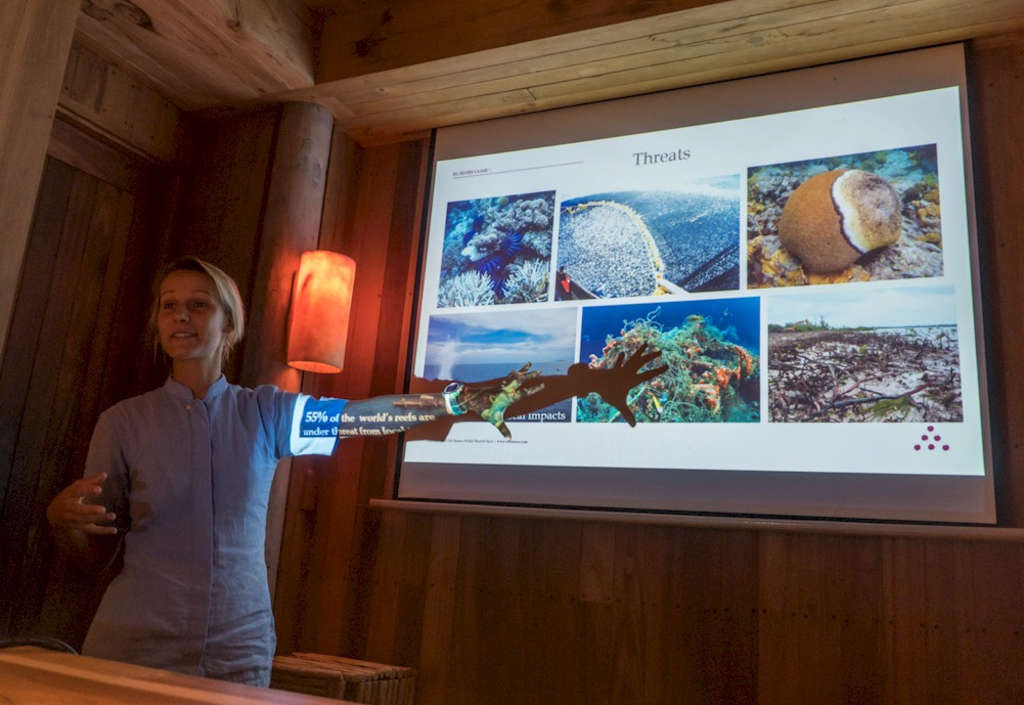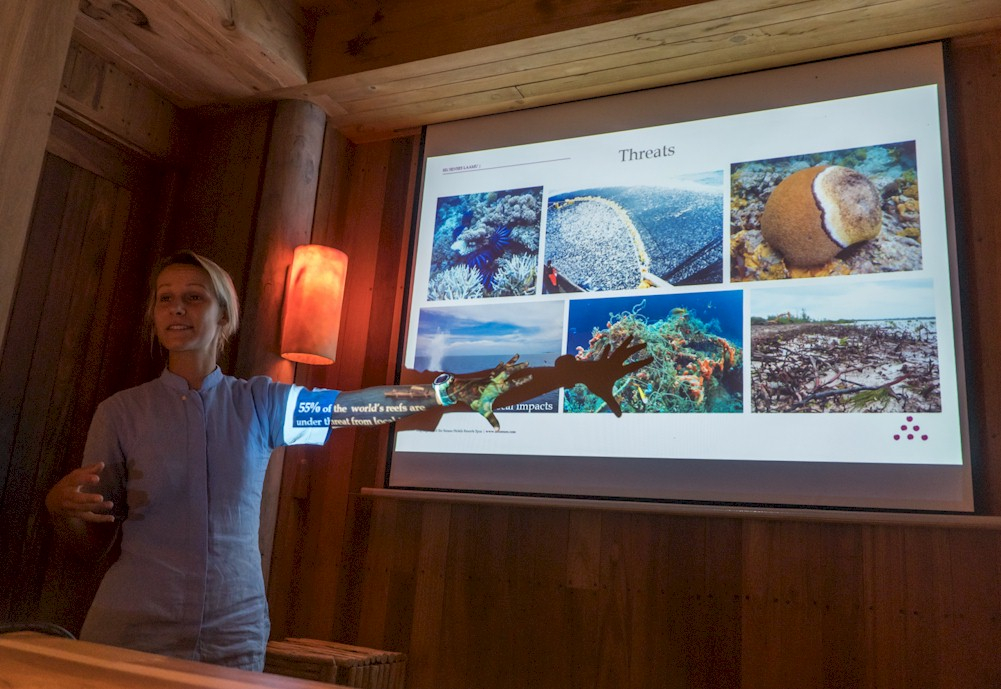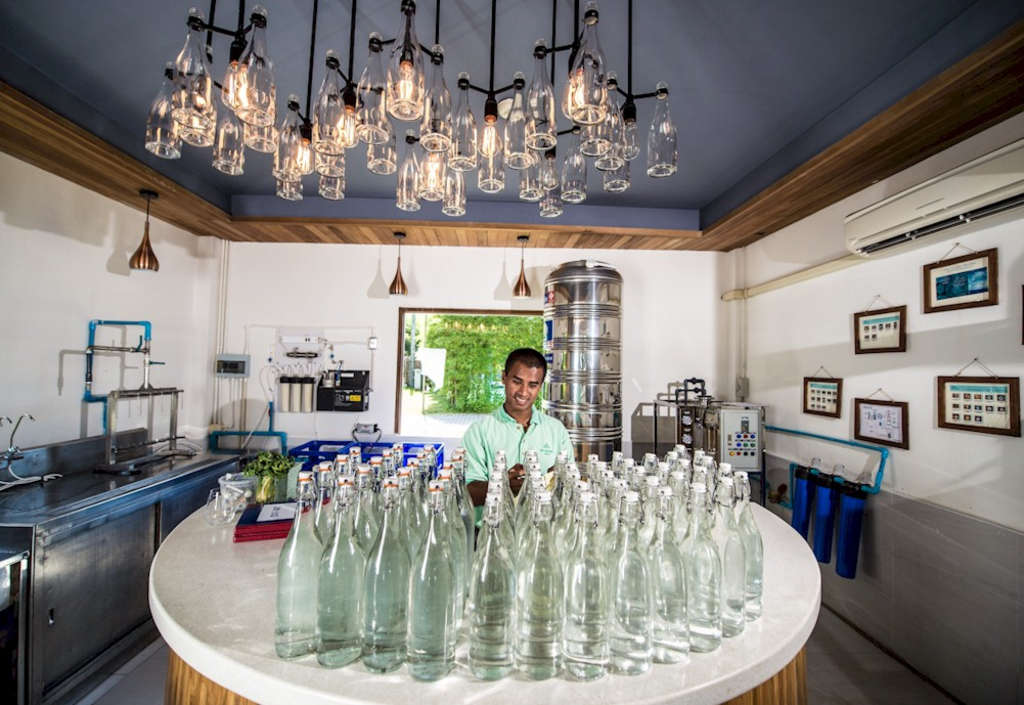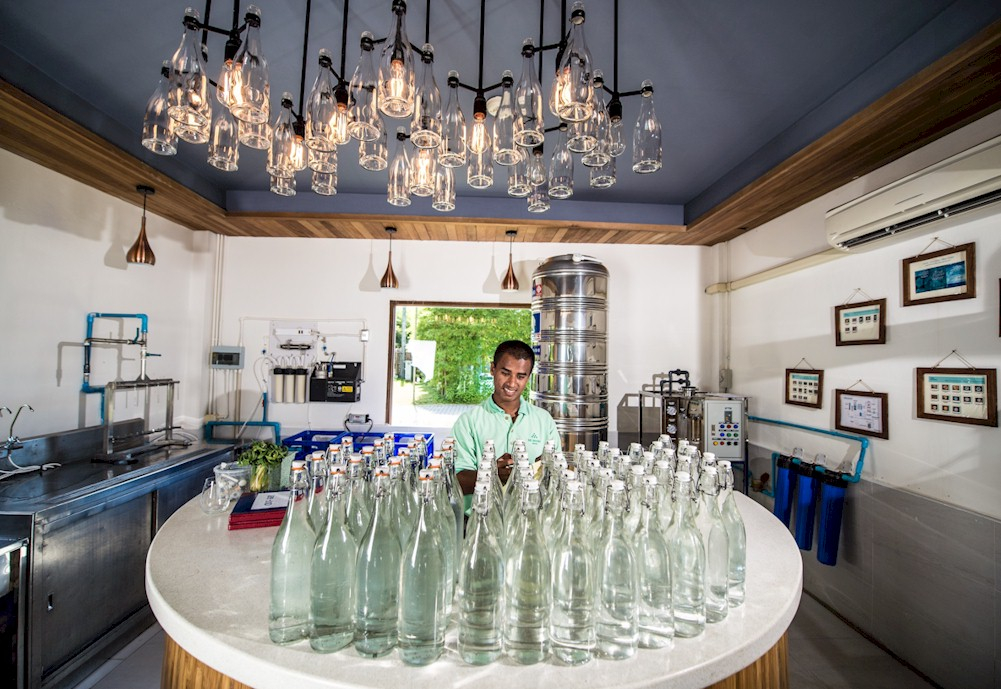Is Your Hotel Regenerative?
Being asked to contribute an article on sustainability is akin to writing an article about agriculture or biology – a topic so absurdly broad it's disinteresting.
Instead, I prefer to write about an emerging new concept with so much promise and excitement around it: regenerative business.
Before we go there though, I am compelled to walk the reader through the evolution of my chosen profession – in the broadest strokes and with the promise not to bury in figures or doom and gloom.
What is all this talk of ESG and how is it different from CSR? Then, before answering the title question, lets understand what is a regenerative hotel?
Allow me to take you back to the late 1990s for a moment. Dial-up internet, Seinfeld on TV and you actually have memorized all your friends' phone numbers. These are the glory days of Corporate Social Responsibility (CSR). There is a raging anti-globalization movement afoot with protesters outside the gates of each World Trade Organization conference. The battle for Seattle. Most companies have already globalized and moved production overseas to utilize lower wages.
Amidst all this, investigative journalists have uncovered weak labor standards. One sports shoe company (we won't name it here) acquired special infamy with a 1996 article in Life Magazine blowing the lid on sweat shops. With globalized communication systems and this wonderful new thing called the Internet, information about supply chains and business practices spreads efficiently and like never before. Consumers are much more aware of corporate practices. Corporations are put on notice.
CSR emerged in response to public relations crises. At risk of offending my colleagues who still bear this title – and of course I'm generalizing here and many CSR professionals do very good work: CSR is a child of marketing. Many CSR professionals still report to marketing departments today. Because of this evolutionary history and corporate structure, CSR decisions are often removed from larger business strategy. CSR initiatives have a natural tendency to be reactionary. Got some bad PR about sweat shops? Run a campaign to fix it. I believe this differs significantly from Sustainability, which I'll explain in a moment. When positioned as a subset of marketing, CSR is also then prone to Greenwashing.
What is Greenwashing? It is the use of marketing or public relations to make a company look and feel environmentally friendly and/or community focused yet with no real progress being made to actually improve standards of practice. It can happen accidentally and with good intentions or it can, and does, happen maliciously. To expand on the metaphor: painting some smokestacks green may make them look greener but the pollution continues unchecked. Of course companies can and should still communicate their efforts and improvements, although clear standards for metrics and disclosure have evolved to assist doing so while avoiding Greenwashing.
What's the difference between Sustainability and CSR? Arguably nothing but semantics, and the terms do get used interchangeably. I believe, however, that a profound change takes place when Sustainability departments are decoupled from Marketing. Sustainability professionals are much more likely to report directly to their CEO or COO compared to CSR colleagues, a trend that began in the early 2000s and continues today. This enables Sustainability to be much more strategic.
When executed well, Sustainability is about strategic risk management. Taking a long-term view and of the broadest possible scope, what risks may have material negative impacts and how can those be avoided? Shut down those sweat shops before the news hits the press. Not only because it may hit the press but also for the long-term stability of your supply chains, for investor confidence, for team morale across the group, etc. When applied early in decision making, Sustainability informs better strategy.
Sustainability requires fundamental shifts in business strategy. It challenges business as usual. It demands an outlook that protects all of the assets required to continue doing business. Assets that exist both on and off the traditional balance sheet. Taking into account both natural and human capital. And enacting policy designed to avoid depleting those resources which the business requires to create value. To allow the business to sustain. But is this really the goal we all want: simply to sustain the status quo?
The hotel industry has mostly been spared the embarrassing exposes and consumer back-lash seen in manufacturing. This I believe is partly due to the transient nature of guests, and partly also to the wonderous hope that travel and tourism inspires (and blinds our consumers). However, it also means our industry has not been forced to change as a result of scrutiny. The strategic pivot to sustainability was never thrust upon hotels. But the opportunity is still ripe.
Circling back to sport shoes, which have suffered such scandal over the years, we can now find true examples of added strategic value going well beyond reactive PR half-measures. Adidas is now selling recycled shoes made from plastic litter recovered from the ocean and is soon to launch an infinitely recyclable shoe. Nike is stepping up its game on net zero operations and opened a distribution hub in 2019 that runs completely on renewable energy and floats its products on canals to reduce transportation related emissions. In both examples we see fundamental change that results not just in some headlines but also in reduced overhead costs (Adidas: raw material; Nike: energy) and therefore reduced financial risk.
OK ESG was mentioned earlier so, here we go. From CSR as an answer to bad public relations, to Sustainability as a means to keep your company running for eternity, over the past 10 years or so the investment world has had an awakening of its own to our plethora of global crises. This awakening manifests itself as a renewed focus on Environmental, Social and Governance (ESG). Yes, another term to mean almost the same thing as Sustainability. If your Sustainability work is investor driven, then it is more likely to be called ESG. And if you haven't heard about this yet then brace yourself, because a whole new generation of investment wealth is very focused on it. The Millennials are coming! They're entering your board rooms and shareholder meetings and infusing them with higher expectations for responsible business and a broader scope on their concept of due diligence.
ESG has proven to pay off finically for investors. This shift in focus isn't driven solely by a moral obligation. It is also fueled by an understanding of the strategic value, and the resulting long-term payout, of Sustainability and ESG. This isn't about being nice, it's about better business. Over the past 10 years ESG rated funds on the whole have consistently outperformed their more traditional competitors.
There exists a whole alphabet soup of ESG reporting standards for financial disclosure and rating systems …which I promise to not go into here! However, I will share a profound take-away from a recent ESG event hosted by GreenBiz, (GreenFin 21 ): many ESG analysts are no longer following those ESG ratings systems. Instead, they favor to cut through the noise and really look just at what is material to any given business. What issues are most relevant and how those issues are being addressed.
Which brings us back to strategy. Sustainability (or ESG or even CSR) is only going to make a real difference if you tackle issues that matter. Issues that matter to your business. If I run a hotel in India and I'm helping orphans in Brazil …well that's all very nice and I may feel like a good person and maybe even get some PR. But it has no relation to and is of no strategic value to my business. It doesn't strengthen my hotel business. It doesn't help my business sustain. Furthermore I would be much more efficient and effective at making a positive impact within my own direct sphere of influence. Starting with my local hotel team, direct suppliers and service providers, and then working outwards from there. Change starts from within.
But shouldn't we all be aiming a little higher than just to sustain? What about growth? Improvement? Giving back? Adding value?
The concept of regenerative started gaining traction with Rodale Institute's work on regenerative agriculture as early as the 1980s. Many excellent resources on this here. This was an evolution in thinking and practice shooting off from organic agriculture and stressing the goal that farming practices can and should give back to the land. Going beyond sustainability. Proving that farming can improve soil fertility over time and increase - not just maintain – food production. A similar evolution in thinking and practice has been afoot in the sustainable business world and is gaining a lot of traction. Going beyond sustainability, beyond the aim of never depleting a business's natural and human capital. Why not aim to increase those? To give back more than what we take.
When applied to the travel industry this concept of regenerative is a natural fit. Because travel and tourism are filled with expectations of hope, exploration, and personal growth. People are compelled to travel not just to sustain but to quench a thirst for life. We've all read too many blogs about experiential travel and travel for purpose – and there is a huge market and momentum behind that. And when those travelers arrive for check-in, they bring high expectations with them.
No one reading this article would be so naïve to not have some sustainability commitments prepared for this market. But do commitments to sustain really hit the mark? I believe to meet expectations for this growing market of travelers a hotel must demonstrate how they are giving back, for local community and for the environment and wildlife. To demonstrate how this individual hotel plays a complimentary and symbiotic role in the larger destination.
Is your hotel regenerative? Well first it needs to be sustainable. Remember, change starts from within. So, if strategic risks have not been addressed then the capacity to add value outside the hotel will be undermined. Simply put: there's no point cleaning up beaches if you dump your own trash in the ocean. Or a more painful example: imagine how better off any hotel would have been financially in 2020 if it had already achieved a 50% energy reduction goal.
I stress the work inside the hotel as the foundation to help the reader avoid Greenwashing and jumping ahead to the high profile yet less strategic ambitions discussed earlier. We must walk before we can run. A hotel is regenerative when operations achieve a net positive increase in all areas of natural and human capital. This likely involves community and environmental programming outside of the normal hotel operations while still taking every required action inside the hotel. It requires a holistic view and long-term planning and the intension to be part of a bigger solution. That bigger solution is worth getting excited about and worth traveling to take part it.





